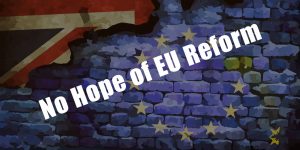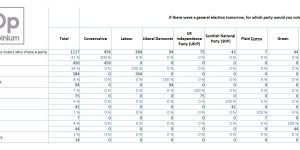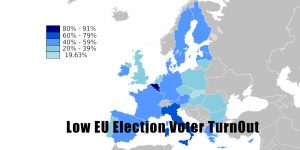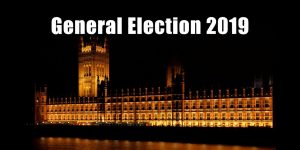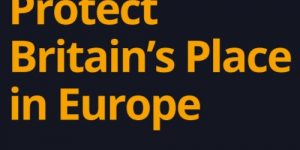The United Kingdom’s Exit from and new Partnership with the European Union White Paper
11. Cooperating in the Fight Against Crime and Terrorism
We will continue to work with the EU to preserve UK and European security, and to fight terrorism and uphold justice across Europe.
11.1 The safety of the UK public is the top priority for the Government. The UK has always been, and will continue to be, a major global player in the fight against threats to security. With the threat constantly evolving, our response must be to work more closely with our partners, including the EU and its Member States, sharing information and supporting each other in combating the threats posed by those who wish us harm. We continue to cooperate closely with our European partners on foreign affairs and provide strong support in tackling the threat of terrorism. This cooperation has already intensified in the wake of the recent attacks in Paris, Brussels and Berlin. It is in all our interests that we continue our deep cooperation with the EU and its Member States to tackle these threats together.
11.2 Our pre-existing security relationship with the EU and its Member States means that we are uniquely placed to develop and sustain a mutually beneficial model of cooperation in this area from outside the Union. We are starting from a position of strong relations with EU Member States, where we have been at the forefront of developing a number of EU tools which encourage joint working across the continent to protect citizens and our way of life:
- the UK is one of the biggest contributors to Europol systems, supporting police forces across the UK and Europe in the fight against cross border crime;
- the UK currently participates in all 13 of Europol’s current operational priority projects. We are driving, or co-driving, almost half of Europol projects against serious organised crime;[93]
- from 2004 to 2015 we extradited over 8,000 individuals accused or convicted of a criminal offence to other EU countries using the European Arrest Warrant;[94]
- Schengen Information System II is a European-wide alerts system that includes alerts for wanted or suspected criminals. From April 2015 to April 2016, over 6,400 foreign alerts received hits in the UK, allowing UK enforcement agencies to take appropriate action, whilst over 6,600 UK-issued alerts received hits across Europe;[95]
- the UK has been a leading proponent of the new EU Passenger Name Records rules, which mean information will soon be collected in all Member States that will make it harder for organised criminals and terrorists to hide their movements; and
- the UK is the fourth largest user of European Criminal Records Information System (ECRIS). In 2015/16 the majority of the over 155,000 requests for overseas criminal convictions information were made to EU countries through ECRIS. EU Member States also benefit from notification messages we provide about their nationals who have been convicted in the UK, with the vast majority of the over 46,000 notifications made through ECRIS.[96]
11.3 Operational cooperation with our European partners has continued since the referendum and the UK will continue to participate fully in EU security and criminal justice measures while we remain a member of the EU.
11.4 Key European partners have made clear that they intend to continue, and indeed deepen, security cooperation, recognising UK expertise in the fight against terrorism, particularly in light of recent attacks and the threat posed by foreign terrorist fighters.
11.5 Our commitment to cooperation on cyber security with our European and global allies will be undiminished and we will continue to work closely with international partners to build capability in countering cyber threats and to ensure the continuation of a free, open, peaceful and secure cyberspace.
11.6 Similarly, serious and organised crime is a transnational threat, requiring a cross-border response. The UK has an excellent record on tackling serious and organised crime, but this alone is not enough; if we are to reduce the threat of serious and organised crime we must continue to work together with our European partners.
11.7 As we exit, we will therefore look to negotiate the best deal we can with the EU to cooperate in the fight against crime and terrorism. We will seek a strong and close future relationship with the EU, with a focus on operational and practical cross-border cooperation.
We will seek a relationship that is capable of responding to the changing threats we face together. Public safety in the UK and the rest of Europe will be at the heart of this aspect of our negotiation.
The UK in the world
11.8 More broadly, the UK will continue to be one of the most important global actors in international affairs. Along with France, we are the only EU Member State with an independent nuclear deterrent and a permanent seat on the UN Security Council. We are one of only four European countries who spend the NATO recommended two per cent of GDP on defence.[97]
We are one of only a handful of countries in the G20 that has pledged to and delivered on spending 0.7 per cent of GNI on overseas aid.[98] We will continue to be a leading actor, working with European and other international partners, in global efforts to tackle major challenges, including climate change.
11.9 We want to use our tools and privileged position in international affairs to continue to work with the EU on foreign policy security and defence. Whether it is implementing sanctions against Russia following its actions in Ukraine, working for peace and stability in the Balkans, or securing Europe’s external border, we will continue to play a leading role alongside EU partners in buttressing and promoting European security and influence around the world. We aim to enhance our strong bilateral relationships with our European partners and beyond, projecting a truly global UK across the world.
European security
11.10 The Government’s national security strategy established clear national security objectives. The 2015 Strategic Defence and Security Review (SDSR) set out a funded plan to achieve them and we are now focused on delivering that plan.
11.11 We participate in Common Security and Defence Policy (CSDP) missions and operations across the globe. Our objective is to ensure that the EU’s role on defence and security is complementary to, and respects the central role of, NATO. After we leave the EU, we will remain committed to European security and add value to EU foreign and security policy.
11.12 We participate in Common Security and Defence Policy CSDP missions and operations across the globe. Our priority missions have had some notable successes.
Operation ATALANTA has successfully tackled piracy off the Horn of Africa – this operation is commanded from the UK and we have supported it since it began in 2008. Since 2004 Operation ALTHEA has made a valuable contribution to stability in Bosnia. In the Mediterranean, working with the EU as part of Operation SOPHIA, the UK has helped to save 10,200 lives, destroyed 124 smuggling boats and apprehended 20 suspected smugglers. This operation is an important part of the EU’s and UK’s wider migration strategy.
11.13 Our contribution to civilian missions has helped increase stability in Europe, notably in Kosovo, Georgia, and Ukraine. Further afield, we contribute to efforts to increase stability in Libya, the Occupied Palestinian Territories and Somalia.
11.14 Some notable examples of our role in civilian CSDP include:
- EU Assistance Mission in Ukraine: The UK co-sponsored the launch of this mission in 2014, the focus of which is security sector reform. UK deployments have helped to establish a coordinated approach to engagement with the Ukrainian authorities and key actors. This mission is an important element alongside sanctions, our bilateral military support and NATO reassurance, in our wider response to Russian aggression;
- EU Rule of Law Mission in Kosovo: UK Judges, Prosecutors and policing expertise have strengthened rule of law and the capability of Kosovan authorities; and
- EU Policing Mission in Afghanistan: UK deployments helped the mission in professionalising the Afghan Police Force prior to the mission closing in 2016.
Leaving the EU, not leaving Europe
11.15 Although we are leaving the EU, the UK will continue to play a leading role as a global foreign and security policy actor.
11.16 The UK has a leading role in NATO’s enhanced Forward Presence. We are providing the Framework Battalion of around 800 military personnel in Estonia, based around armoured infantry equipped with Warrior armoured fighting vehicles, and a troop of our Challenger 2 Main Battle Tanks. We are also sending a reconnaissance squadron of around 150 military personnel to Poland.
11.17 The UK is also playing a leading role in NATO’s Response Force (NRF) – a highly ready and technologically advanced, multinational force made up of land, air, maritime and Special Operations Forces (SOF) components that the Alliance can deploy quickly, wherever needed.
In addition to its operational role, the NRF can be used for greater cooperation in education and training, increased exercises and better use of technology.
11.18 We will also contribute to NATO’s Southern Air Policing mission this summer, based in Romania, through the provision of Typhoon aircraft. Typhoon offers a proven and credible air defence capability alongside Romanian air defence aircraft.
11.19 We will remain a global power, and will continue to work with European partners to tackle shared challenges.
[93] National Crime Agency.
[94] ‘Historical European Arrest Warrants statistics 2004 – May 2016’, National Crime Agency, June 2016.
[95] ‘SIS II Management Information’, National Crime Agency, 2016.
[96] ‘ACRO Criminal Records Office Annual Report 2015-2016’, ACRO Criminal Records Office, 2016.
[97] ‘Defence Expenditures of NATO Countries’, NATO, July 2016.
[98] ‘Official Development Assistance 2015’, OECD, 2016.
Previous : Ensuring the UK Remains the Best Place for Science and Innovation
Next : Delivering a Smooth, Orderly Exit from the EU
The United Kingdom’s Exit from and new Partnership with the European Union White Paper

